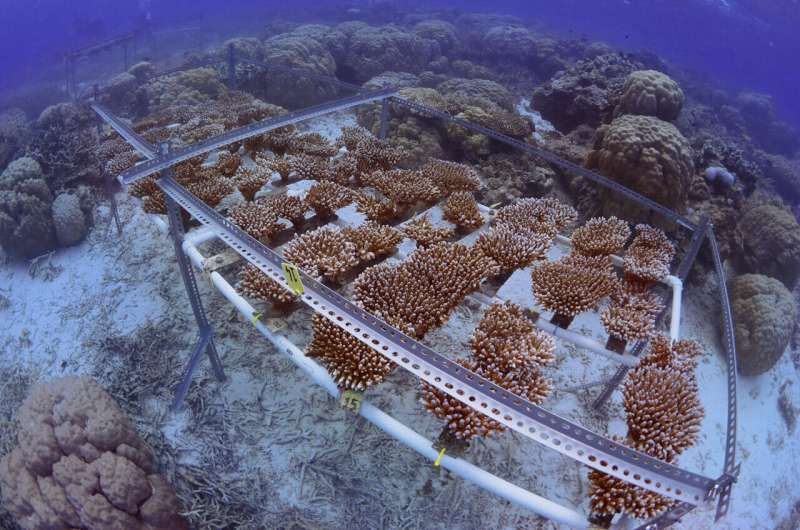A groundbreaking study by researchers at Newcastle University’s Coralassist Lab has successfully demonstrated the feasibility of selectively breeding corals to improve their heat tolerance. This proof-of-concept research offers hope for preserving coral reefs in the face of climate change. The findings suggest that selective breeding could be a viable tool to enhance the resilience of coral populations, but urgent climate action remains essential to mitigate the impacts of global warming on these fragile ecosystems.

Selective Breeding: A Promising Approach to Boost Coral Heat Tolerance
The study, published in the journal Nature Communications, was led by a team of experts at Newcastle University’s Coralassist Lab, in partnership with several other institutions. The researchers set out to explore whether selective breeding could enhance the heat tolerance of adult corals, a critical trait for their survival in the face of marine heat waves.
The team conducted selective breeding trials, focusing on two different heat stress scenarios: a short, intense exposure (10 days, reaching +3.5°C) and a less intense but longer-term exposure (1 month, reaching +2.5°C). The results were promising, as they found that selecting parent colonies with higher heat tolerance increased the tolerance of their adult offspring. In theory, this approach could enhance heat tolerance by approximately 1°C per week within a single generation.
Coral Resilience: A Multifaceted Challenge
While the findings demonstrate the potential of selective breeding, the researchers emphasize that this approach is not a silver bullet solution. The level of enhancement achieved in the study is likely insufficient to keep pace with the projected unabated warming driven by climate change.
Additionally, the study revealed that selecting for short-term heat stress tolerance did not necessarily translate to improved survival during prolonged heat waves, suggesting that these traits may be under independent genetic controls. This underscores the complexity of coral resilience and the need for a deeper understanding of the underlying genetic factors.
Dr. Adriana Humanes, the study’s lead author and a Postdoctoral Research Associate at the Coralassist Lab, highlights the considerable work that remains before selective breeding can be successfully implemented: “A deeper understanding is needed to determine which traits to prioritize and how these traits are genetically correlated.”
Furthermore, the researchers emphasize the importance of addressing practical challenges, such as determining the optimal number of corals to outplant, ensuring there are no unintended trade-offs, and preventing the dilution of selected traits once added to wild populations.
Urgent Climate Action: The Key to Coral Reef Survival
While selective breeding offers hope, the researchers stress that rapid reductions in global greenhouse gas emissions are an absolute requirement to mitigate warming and give corals a chance to adapt. Dr. James Guest, Reader in Coral Reef Ecology at Newcastle University, explains, “The results show that selective breeding could be a viable tool to improve population resilience. Yet, there are still many challenges that need to be overcome.”
The authors acknowledge that the modest levels of enhancement achieved in this study highlight the critical importance of urgent climate action. Dr. Liam Lachs, the study’s lead author and a Postdoctoral Research Associate at Newcastle University, states, “In parallel, rapid reductions of global greenhouse gas emissions are an absolute requirement to mitigate warming and give corals an opportunity to adapt.”
The research team emphasizes that this work serves as a proof of concept, demonstrating the feasibility of selective breeding to improve coral heat tolerance. However, they call for further research and development to understand how to best operationalize breeding interventions and maximize outcomes, in conjunction with concurrent efforts to address the root cause of the problem: climate change.
